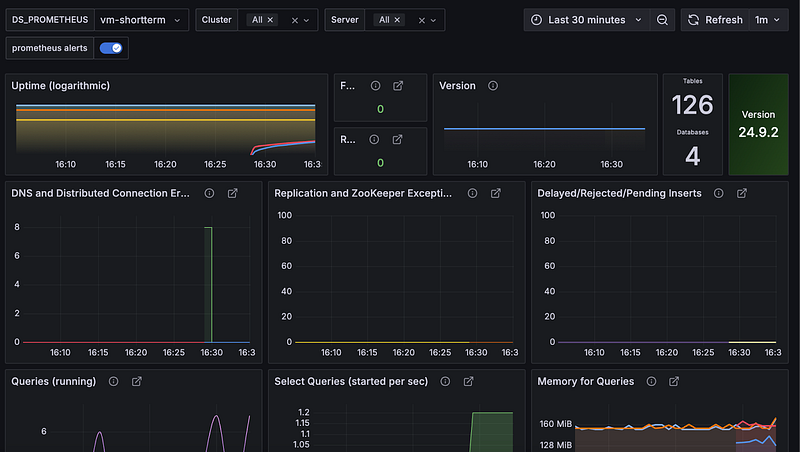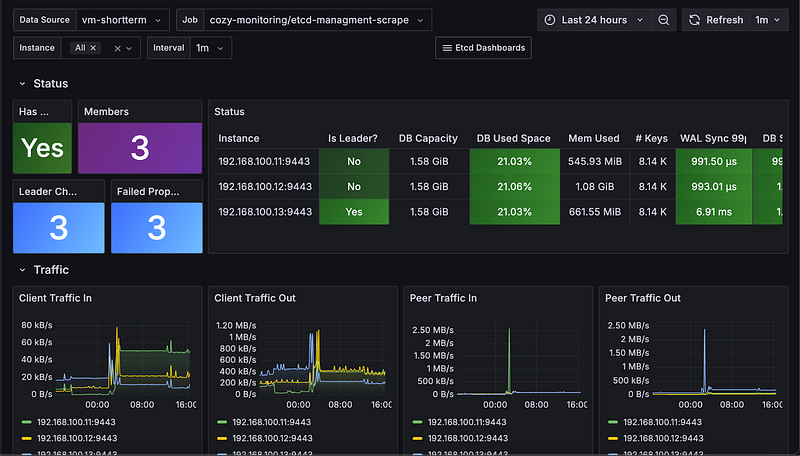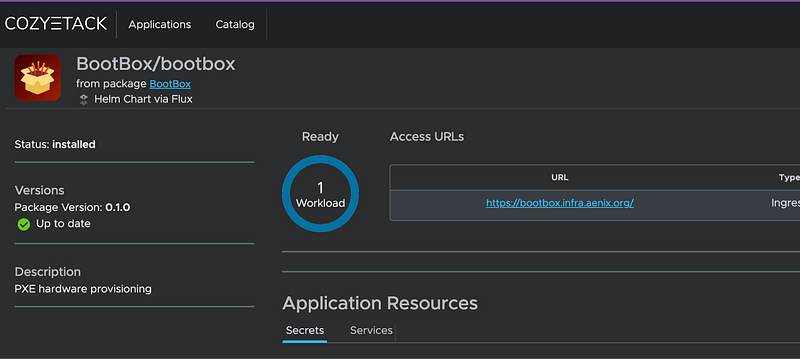Updates to the Open-Source Platform Cozystack 0.24–0.29:
Updates to the Open-Source Platform Cozystack 0.24–0.29: PXE Machine Provisioning, Inter-Datacenter RTT Monitoring, and Dedicated IP Addresses for VMs
We haven’t shared much about Cozystack’s new features lately, even though we’ve released six new versions over the past month and a half: 0.24, 0.25, 0.26, 0.27, 0.28, and 0.29. Let’s take a closer look at the changes, starting from the latest release and going back to version 0.24.
What is Cozystack?
Cozystack is an open-source platform that enables building a bare-metal cloud for rapid deployment of managed Kubernetes, Database as a Service, Applications as a Service, and KubeVirt-based virtual machines. With just a click, users can deploy services like Kafka, FerretDB, PostgreSQL, Cilium, Grafana, VictoriaMetrics, and more.
Key Changes
- Platform Stabilization for Multi-Datacenter Configurations: Significant improvements were made to etcd, Cilium, Kube-OVN, Linstor, and other components.
- Enhanced Observability Stack: New dashboards were added for several components, and Grafana settings were optimized for better performance.
- Release of the cozy-proxy Utility: This tool allows assigning dedicated IP addresses to VMs in Kubernetes (instead of just exposing individual ports).
- Introduction of Vertical Pod Autoscaler (VPA): VPA automatically sets resource limits for applications based on historical metrics.
- Documentation Refactoring and Expansion: New sections were added to improve clarity and usability.
- Repository Migration: The platform and its utilities were moved from the aenix-io organization to cozystack after the project was accepted into the CNCF Sandbox.
Cozystack v0.29
In v0.29.0, the development team focused on improving platform stability and reliability, including patching CVE-2025–1974 in ingress-nginx. New features include:
- A set of presets to limit resource consumption for applications.
- Automated certificate renewal.
- Expanded VPA integration with additional platform components.
Other Changes:
- Added Cilium host firewall for improved out-of-the-box cluster security.
- Implemented a process for running e2e tests in GitHub CI.
- Published the first version of the project governance structure as part of the CNCF Sandbox transition.
- Updated Flux Operator to v0.18.0 and Talos Linux to v1.9.5.
Cozystack v0.28
The highlight of this release was the introduction of Vertical Pod Autoscaler (VPA) to automatically set resource limits for applications. The repository was also moved from aenix-io to the cozystack GitHub organization.
Other Changes:
- Tenant isolation is now enabled by default.
- Source-IP validation responsibility shifted from Cilium to Kube-OVN.
- Minor bug fixes in LINSTOR, Kube-OVN, and KubeVirt.
- Updated Cilium to v1.17.1 and Kube-OVN to v1.13.3.
Cozystack v0.27
This release focused on platform stabilization and introduced linstor-plunger scripts to automatically fix issues in LINSTOR (e.g., DRBD lost connection, stuck loop devices). It also added support for distributing PostgreSQL replicas across different nodes.
Other Changes:
- Added convenient dashboards for ClickHouse and Piraeus monitoring.
- Updated etcd-operator to v0.4.1.
- Increased maxLabelsTimeseries from 30 to 60.
- Fixed the Goldfinger dashboard for tracking network latency in multi-datacenter clusters.
Details: v0.27.0.
Cozystack v0.26
This release improved stability for multi-datacenter configurations and added network connectivity monitoring. These metrics help fine-tune platform components.
Other Changes:
- Added resource limits for individual tenants within a cluster.
- Integrated Goldpinger to monitor latency between datacenters, with data displayed in Grafana.
- Live VM migration is now enabled by default.
- Introduced LINSTOR volume snapshots (a step toward a full backup system).
- Fixed TLS handling in etcd helm chart to prevent issues with expired root certificates (previously valid for 90 days).
Cozystack v0.25
This release introduced cozy-proxy, a standalone tool for assigning dedicated IP addresses to VMs (instead of just ports). This is crucial for service providers running VM-based applications requiring unique IPs.
Other Changes:
- Enhanced monitoring for etcd, Flux, and Kafka with new dashboards.
- Updated Talos Linux to v1.9.3.
- Tenant-specific users can now download kubeconfig.
Details: v0.25.0, v0.25.1, v0.25.2, v0.25.3.
Cozystack v0.24
This release added PXE provisioning for nodes to automatically deploy Talos Linux. The smee (DHCP/PXE server) from Tinkerbell was integrated for this purpose.
Other Changes:
- Updated cert-manager to v16.
- Replaced darkhttp with the custom cozystack-assets-server.
- Pre-installed Grafana plugins for faster startup.
What’s Next
We’re finalizing GPU support for VMs to enable AI/ML workloads on the platform.


